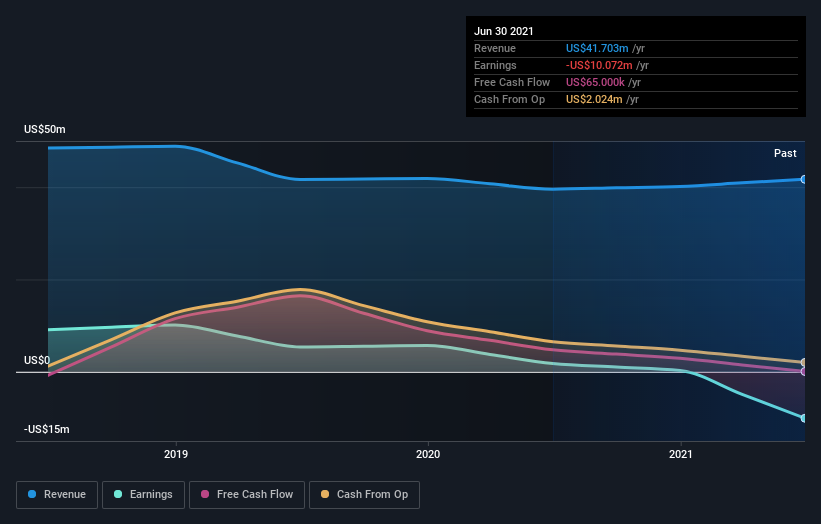- Switzerland
- /
- Healthcare Services
- /
- SWX:SHLTN
Institutional investors in SHL Telemedicine Ltd. (VTX:SHLTN) see CHF27m decrease in market cap last week, although long-term gains have benefitted them.

Every investor in SHL Telemedicine Ltd. (VTX:SHLTN) should be aware of the most powerful shareholder groups. The group holding the most number of shares in the company, around 61% to be precise, is institutions. In other words, the group stands to gain the most (or lose the most) from their investment into the company.
Losing money on investments is something no shareholder enjoys, least of all institutional investors who saw their holdings value drop by 10% last week. However, the 48% one-year return to shareholders may have helped lessen their pain. They should, however, be mindful of further losses in the future.
Let's take a closer look to see what the different types of shareholders can tell us about SHL Telemedicine.
Check out our latest analysis for SHL Telemedicine

What Does The Institutional Ownership Tell Us About SHL Telemedicine?
Institutional investors commonly compare their own returns to the returns of a commonly followed index. So they generally do consider buying larger companies that are included in the relevant benchmark index.
As you can see, institutional investors have a fair amount of stake in SHL Telemedicine. This suggests some credibility amongst professional investors. But we can't rely on that fact alone since institutions make bad investments sometimes, just like everyone does. If multiple institutions change their view on a stock at the same time, you could see the share price drop fast. It's therefore worth looking at SHL Telemedicine's earnings history below. Of course, the future is what really matters.

Institutional investors own over 50% of the company, so together than can probably strongly influence board decisions. Hedge funds don't have many shares in SHL Telemedicine. Looking at our data, we can see that the largest shareholder is GF Fund Management Co., Ltd. with 41% of shares outstanding. Intergemel Provident Funds and Pension Ltd. is the second largest shareholder owning 6.2% of common stock, and Southland Holding Ltd. holds about 5.4% of the company stock.
To make our study more interesting, we found that the top 3 shareholders have a majority ownership in the company, meaning that they are powerful enough to influence the decisions of the company.
While it makes sense to study institutional ownership data for a company, it also makes sense to study analyst sentiments to know which way the wind is blowing. As far as we can tell there isn't analyst coverage of the company, so it is probably flying under the radar.
Insider Ownership Of SHL Telemedicine
The definition of an insider can differ slightly between different countries, but members of the board of directors always count. The company management answer to the board and the latter should represent the interests of shareholders. Notably, sometimes top-level managers are on the board themselves.
Most consider insider ownership a positive because it can indicate the board is well aligned with other shareholders. However, on some occasions too much power is concentrated within this group.
Shareholders would probably be interested to learn that insiders own shares in SHL Telemedicine Ltd.. As individuals, the insiders collectively own CHF22m worth of the CHF246m company. Some would say this shows alignment of interests between shareholders and the board. But it might be worth checking if those insiders have been selling.
General Public Ownership
With a 16% ownership, the general public, mostly comprising of individual investors, have some degree of sway over SHL Telemedicine. While this size of ownership may not be enough to sway a policy decision in their favour, they can still make a collective impact on company policies.
Private Company Ownership
Our data indicates that Private Companies hold 14%, of the company's shares. It might be worth looking deeper into this. If related parties, such as insiders, have an interest in one of these private companies, that should be disclosed in the annual report. Private companies may also have a strategic interest in the company.
Next Steps:
It's always worth thinking about the different groups who own shares in a company. But to understand SHL Telemedicine better, we need to consider many other factors. To that end, you should be aware of the 1 warning sign we've spotted with SHL Telemedicine .
Of course this may not be the best stock to buy. Therefore, you may wish to see our free collection of interesting prospects boasting favorable financials.
NB: Figures in this article are calculated using data from the last twelve months, which refer to the 12-month period ending on the last date of the month the financial statement is dated. This may not be consistent with full year annual report figures.
New: Manage All Your Stock Portfolios in One Place
We've created the ultimate portfolio companion for stock investors, and it's free.
• Connect an unlimited number of Portfolios and see your total in one currency
• Be alerted to new Warning Signs or Risks via email or mobile
• Track the Fair Value of your stocks
Have feedback on this article? Concerned about the content? Get in touch with us directly. Alternatively, email editorial-team (at) simplywallst.com.
This article by Simply Wall St is general in nature. We provide commentary based on historical data and analyst forecasts only using an unbiased methodology and our articles are not intended to be financial advice. It does not constitute a recommendation to buy or sell any stock, and does not take account of your objectives, or your financial situation. We aim to bring you long-term focused analysis driven by fundamental data. Note that our analysis may not factor in the latest price-sensitive company announcements or qualitative material. Simply Wall St has no position in any stocks mentioned.
About SWX:SHLTN
SHL Telemedicine
Develops and markets personal telemedicine solutions in Israel, Europe, and internationally.
Excellent balance sheet low.
Similar Companies
Market Insights
Community Narratives



